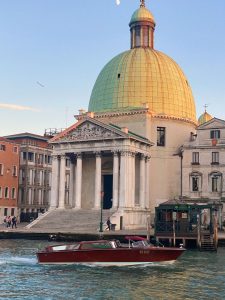 My name is Esmé O’Mahony and I studied English Language and Linguistics. I took on British Sign Language Stage 1 in my second year of university and progressed to Stage 2 whilst in my final year. I’d always had a keen interest in languages and BSL was something I had always wanted to learn, especially as I felt taking a language module would complement my main degree.
My name is Esmé O’Mahony and I studied English Language and Linguistics. I took on British Sign Language Stage 1 in my second year of university and progressed to Stage 2 whilst in my final year. I’d always had a keen interest in languages and BSL was something I had always wanted to learn, especially as I felt taking a language module would complement my main degree.
I enjoyed every aspect of the BSL course – learning the vocabulary and signing with my peers was fun, but the most interesting thing for me was learning about Deaf culture. I found the content itself fascinating, especially having the lectures signed and interpreted. In my final year, I chose to write my dissertation on how deaf children are taught to read and from there, I pursued a career as an audiologist – something I would not have considered for a moment before taking the BSL module.
Something I was nervous of prior to starting class was the practical elements; I am an academic person and knowing that I would have to utilise my practical skills was daunting at first. Fortunately, there was a good balance between practical lessons and interpreted lectures so I was able to develop new skills and enjoy a format I was familiar with.
BSL classes were a refreshing change from my main degree because of the different methods of teaching and how the content was delivered. Several aspects of the course overlapped with my degree (for example, the study of linguistics within BSL), so it felt like I was aiding my learning rather than juggling extra work.
I learned so much more than the language in the BSL course; it has had a substantial impact on my life and introduced me to a rewarding career in audiology. I could not recommend the module highly enough for anyone who is thinking about taking it, the skills and knowledge I have gained and the passion the lecturers have for the module is invaluable.



 n mistakes significantly lowered the amount of errors I made in the future speaking to Italians. In my portfolio I mainly focused on scenarios I would come across in Venice, e.g. conversations in restaurants, supermarkets and so on.
n mistakes significantly lowered the amount of errors I made in the future speaking to Italians. In my portfolio I mainly focused on scenarios I would come across in Venice, e.g. conversations in restaurants, supermarkets and so on.

